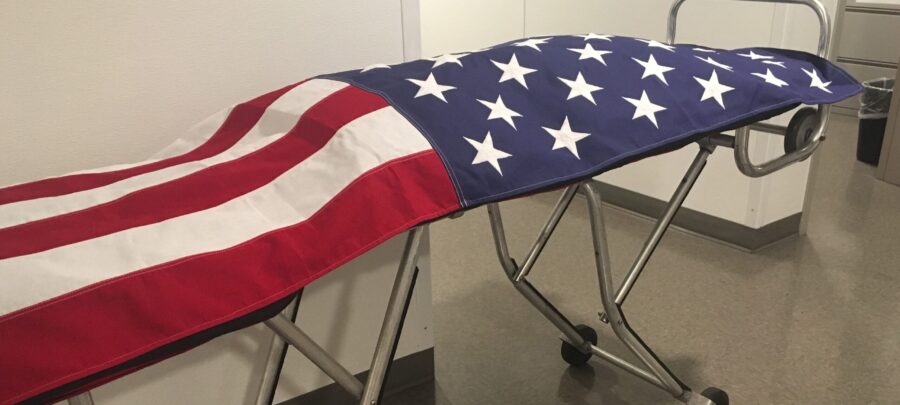Whenever we see a flag-draped gurney exit the T. Boone Pickens Hospice and Palliative Care Center, we stop whatever we are doing. It is an extremely moving experience to line the halls in silence as the gurney passes. A small gesture of respect, in exchange for the extraordinary sacrifices that the deceased has made on our behalf.
There are 22 million Veterans in the U.S. Many are unaware of hospice benefits. Others enter hospice care and are never identified, even though military experience can profoundly impact end-of-life issues. The special needs of Veterans include chronic pain, PTSD, traumatic brain injuries, and diseases related to chemical exposures. Many Veterans have never shared their stories, or received the hero’s welcome they deserve.
With the help of an amazing resource, the We Honor Veterans Network, hospice programs across the country are working to respond to the special needs of Veterans, beginning with identifying Veterans by branch of service, time of service, and combat experience. Among the tools they offer is this slide which speaks to the compounding impact of our country’s response over time to military service:
WW II – Veterans welcomed home as heroes, country worked together
Korea – Veterans ignored, the “forgotten war”
Vietnam – Veterans shamed, country torn apart
While social workers and chaplains may be in a better position to assist Veterans as they process their experiences at the end of life, massage therapists also have the opportunity to play a supportive role. Below are tips based on suggestions offered on the We Honor Veterans website (www.wehonorveterans.org), to which we have added a few of our own.
- If you work for an agency that does not include military service on their intake form, direct them to the We Honor Veterans website for information.
- Respect Veterans’ service, their feelings, and any suggestions they might offer.
- Thank Veterans for their service to our country.
- Show appreciation for the families of Veterans.
- Always be sincere, caring, compassionate and ready and able to listen to what a Veteran or his or her family member has to share about the situation they are dealing with.
- Be supportive and non-judgmental and always validate their feelings and concerns.
- Be honest, sincere, caring and respectful.
- Accept, without judgment, the Veteran as he/she is.
- It might take longer for some Veterans to trust you. Be patient and listen.
Questions? Comments? Please get in touch: FinalTouchTraining.com


